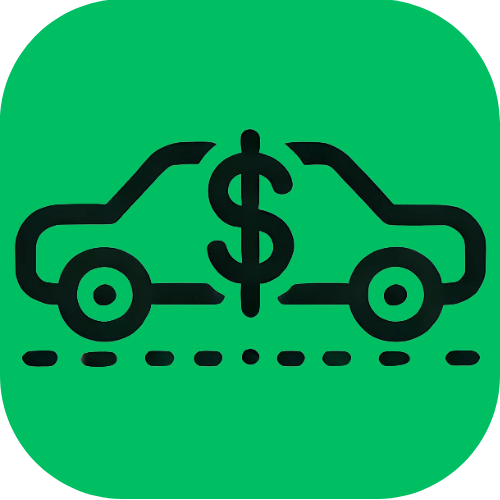Car Buying Tips for First-Time Buyers: A Comprehensive Guide to Setting Your Car Budget
31 May 2025Detailed car financing explained with practical strategies for how to set a car budget and find the best affordable cars.
Introduction: Car Buying Tips for First-Time Buyers
Purchasing a car is a significant financial decision that requires careful planning. This guide will walk you through how to set a car budget, understand car financing, and make a confident purchasing decision.
Step 1: Assess Your Current Financial Landscape
Before diving into car shopping, take a holistic view of your financial situation:
- Monthly Income: Calculate your take-home pay after taxes
- Fixed Expenses: List all mandatory monthly payments
- Rent/Mortgage
- Utilities
- Insurance
- Existing loan payments
- Discretionary Spending: Track your current spending on entertainment, dining, and other non-essential expenses
Step 2: The 10-15% Rule for Car Expenses
Financial experts recommend limiting your total car expenses to 10-15% of your monthly take-home pay. Here's how to break this down:
| Monthly Income | Recommended Car Budget (10-15%) |
|---|---|
| $3,000 | $300 - $450 |
| $4,000 | $400 - $600 |
| $5,000 | $500 - $750 |
Step 3: Calculate Total Car Ownership Costs
Your budget isn't just about the monthly car payment. Consider these comprehensive costs:
- Monthly Loan Payment
- Principal and interest
- Loan term length
- Insurance Costs
- Full coverage premiums
- Potential variations based on car model
- Ongoing Expenses
- Fuel
- Regular maintenance
- Potential repairs
Step 4: Down Payment Strategies
A substantial down payment can significantly reduce your financial burden:
- Aim for 20% of the car's total price
- Reduces monthly payments
- Lowers total interest paid
- Helps avoid being "underwater" on the loan
Step 5: Credit Score Considerations
Your credit score dramatically impacts your loan terms:
| Credit Score Range | Typical Interest Rate |
|---|---|
| Excellent (750+) | 3-4% |
| Good (700-749) | 4-6% |
| Fair (650-699) | 6-10% |
| Poor (Below 650) | 10-15% |
Common Budgeting Mistakes to Avoid
- Overlooking total ownership costs
- Stretching loan terms too long
- Ignoring insurance and maintenance expenses
- Not considering future financial goals
Conclusion: Your Path to Smart Car Ownership
Calculating your car budget doesn't have to be a source of stress. By following these systematic steps, you can approach car buying with confidence, financial prudence, and peace of mind. Remember, the right car isn't just about the model—it's about finding a vehicle that fits comfortably within your financial ecosystem.
Take your time, do your research, and make a decision that supports both your transportation needs and your financial health.
Car Financing Explained: Key Concepts
Understanding car financing is crucial for first-time buyers. Here are the essential concepts to grasp:
- Interest rates and how they impact your total cost
- Loan terms and their long-term financial implications
- The importance of credit scores in securing favorable financing
- Down payment strategies to reduce overall financing costs
Understanding Interest Rates
- APR vs. Interest Rate: The key differences explained
- Fixed vs. Variable Rates: Choosing the right option
- Credit Score Impact: How your score affects rates
- Rate Shopping: How to compare offers effectively
Loan Term Considerations
- Short-term Benefits: Lower total interest, faster equity
- Long-term Implications: Lower payments but higher costs
- Early Payoff Options: Understanding prepayment penalties
Hidden Costs of Car Ownership
Beyond the purchase price, consider these often-overlooked expenses:
| Expense Category | Annual Cost Range | Factors Affecting Cost |
|---|---|---|
| Insurance | $800-$2,000 | Age, location, driving history |
| Maintenance | $500-$1,500 | Vehicle age, make, model |
| Fuel | $1,200-$2,400 | Driving habits, fuel efficiency |
Smart Shopping Strategies
Timing Your Purchase
- Best Months: December and end-of-quarter deals
- Model Year Changes: Taking advantage of clearance sales
- Holiday Specials: When to find the best promotions
Negotiation Tactics
- Research Tools: Using online pricing guides
- Dealer Incentives: Understanding available rebates
- Price Matching: Leveraging competitive offers
Technology and Safety Considerations
Modern vehicles offer various tech features that can affect your budget:
- Essential Safety Features:
- Advanced driver assistance systems (ADAS)
- Backup cameras and sensors
- Emergency braking systems
- Connectivity Options:
- Smartphone integration
- Navigation systems
- Entertainment packages
Conclusion: Your Path to Smart Car Ownership
Calculating your car budget doesn't have to be a source of stress. By following these systematic steps, you can approach car buying with confidence, financial prudence, and peace of mind. Remember, the right car isn't just about the model—it's about finding a vehicle that fits comfortably within your financial ecosystem.
Take your time, do your research, and make a decision that supports both your transportation needs and your financial health.
Tags:
Financial Planning Expert
Personal Finance Consultant
